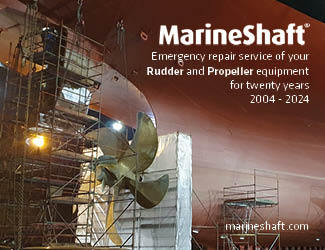
The typical customer of the German shipbuilding and ocean industry settles for nothing but the ultimate best. This principle can be found in various market segments, for various shiptypes and structures as well as systems, components or related services, argues Reinhard Lüken
The worldwide[ds_preview] renowned German »Mittelstand« (SME and mid cap companies) is the backbone of our industry. Often family-owned, they are characterised by a long-term business philosophy. Customer satisfaction, prudent but sustainable growth, strong market focus and specialisation are among the key characteristics. A strong commitment to teaching the next generation of engineers and specialist craftsmen the art of naval architecture and marine engineering safeguards the long tradition of excellent know-how. Germany’s maritime manufacturing industry invests each year, also during difficult market cycles, in education, research and development and has thereby grown an impressive human capital base.
However, there is another essential element to the German success model: strong cooperation within the large network of companies with its very broad range of expertise. Roughly 3,000 companies are active in maritime manufacturing in Germany. It is the joining of forces that creates the environment for permanent improvements and continuous innovation.
»The vast opportunities at sea drive our thinking. With the help of technical advances, new maritime markets are born time and again«
Particularly if the task at sea is complex and demanding, hardware that does the job perfectly is crucial. Complex newbuilding for civil and naval applications, retrofits, conversions and repair tasks – the members of the German Shipbuilding and Ocean Industries Association (VSM) provide the perfect solution to the customers’ needs.
The vast opportunities at sea drive our thinking. With the help of technical advances, new maritime markets are born time and again. The cruise industry is the strongest growth segment in the tourism business. Oil & gas exploitation moves on to ever deeper seas and further off the coast, requiring new cost-efficient technologies. Offshore renewable energy particular in Europe is growing fast and enjoys a steep learning curve. A similar path can be expected related to deep-sea mining. The growing strategic offshore interests also lead to increasing awareness of maritime security and defense concerns. In addition, for all maritime operations energy efficiency and environmental friendliness have become a key objective. All in all, there are plenty of reasons why to seek technology made in Germany.
Reinhard Lüken


















